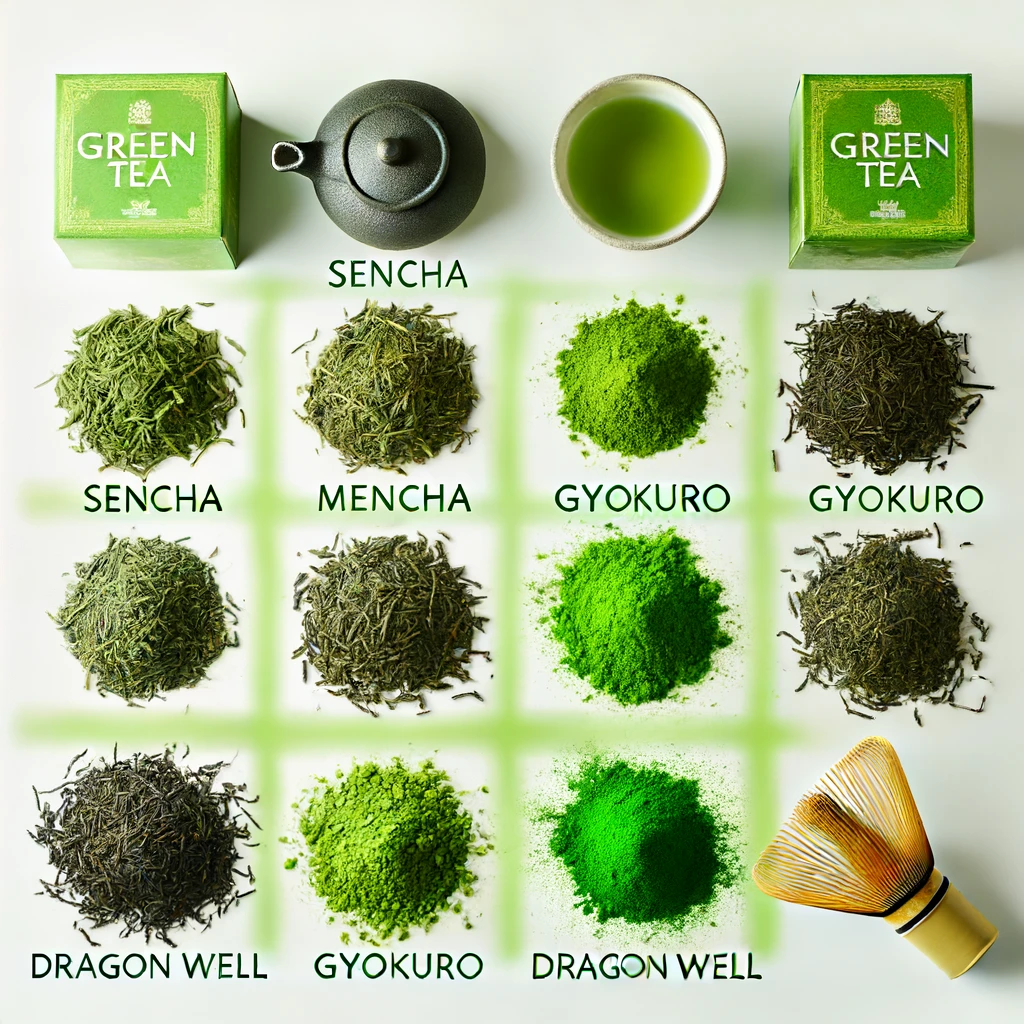The Wonders of Green Tea: Health Benefits, Types, and Brewing Tips
Green tea has been cherished for centuries, originating in China and widely used across Asia. Its popularity has surged globally due to its numerous health benefits and refreshing taste. In this comprehensive guide, we will explore the history, types, health benefits, and brewing tips for green tea, ensuring you get the most out of this wonderful beverage.
History of Green Tea
Green tea’s history dates back over 5,000 years to ancient China. Legend has it that Emperor Shen Nong discovered tea when leaves from a wild tea tree blew into his boiling pot of water. Intrigued by the pleasant aroma, he drank the infusion and found it refreshing and invigorating. Since then, green tea has become an integral part of Asian culture and has spread worldwide.
Types of Green Tea
There are several types of green tea, each with its unique flavor profile and health benefits. Here are some of the most popular varieties:
- Sencha: The most common green tea in Japan, Sencha has a bright, grassy flavor and is enjoyed daily by many.
- Matcha: A powdered green tea used in traditional Japanese tea ceremonies. It has a rich, umami flavor and is packed with antioxidants.
- Gyokuro: This premium Japanese green tea is grown in the shade, resulting in a sweet, delicate flavor.
- Dragon Well (Longjing): A Chinese green tea known for its flat leaves and mellow, nutty taste.
- Gunpowder: Named for its pellet-like shape, this Chinese tea has a bold, smoky flavor.
Health Benefits of Green Tea
Green tea is renowned for its numerous health benefits, which include:
- Rich in Antioxidants: Green tea contains polyphenols, particularly catechins, which are powerful antioxidants. These help protect cells from damage and reduce inflammation.
- Boosts Metabolism: The catechins and caffeine in green tea can help increase metabolic rate and promote fat burning, aiding in weight loss.
- Improves Brain Function: The combination of caffeine and L-theanine in green tea can enhance brain function, improving focus, memory, and mood.
- Reduces Risk of Chronic Diseases: Regular consumption of green tea is linked to a lower risk of cardiovascular diseases, certain cancers, and type 2 diabetes.
- Supports Oral Health: Green tea has natural antibacterial properties that can help reduce the risk of dental cavities and bad breath.
How to Brew the Perfect Cup of Green Tea
Brewing green tea correctly is essential to enjoy its full flavor and health benefits. Here are some tips to help you brew the perfect cup:
- Water Temperature: Green tea is best brewed with water between 160-180°F (70-80°C). Boiling water can scorch the leaves, resulting in a bitter taste.
- Steeping Time: Steep green tea for 2-3 minutes. Over-steeping can also lead to bitterness.
- Tea-to-Water Ratio: Use about one teaspoon of green tea leaves per cup of water.
- Quality of Water: Use fresh, filtered water to ensure the best taste.
- Multiple Infusions: High-quality green tea leaves can be steeped multiple times. Increase the steeping time slightly with each subsequent infusion.
Culinary Uses of Green Tea
Green tea is not just for drinking; it can also be used in various culinary applications. Here are some creative ways to incorporate green tea into your diet:
- Matcha Smoothies: Blend matcha powder with fruits, yogurt, and a sweetener for a refreshing and healthy smoothie.
- Green Tea Ice Cream: Enjoy the unique flavor of green tea in a creamy, delicious ice cream.
- Green Tea Noodles: Add powdered green tea to homemade noodle dough for a subtle tea flavor and added health benefits.
- Green Tea Salad Dressing: Mix brewed green tea with olive oil, vinegar, and seasonings for a light and flavorful dressing.
Conclusion
Green tea is a versatile and beneficial beverage that has stood the test of time. Its rich history, diverse types, numerous health benefits, and culinary versatility make it a valuable addition to any diet. Whether you are a seasoned tea drinker or new to the world of green tea, there is always something new to discover and enjoy about this remarkable beverage.
